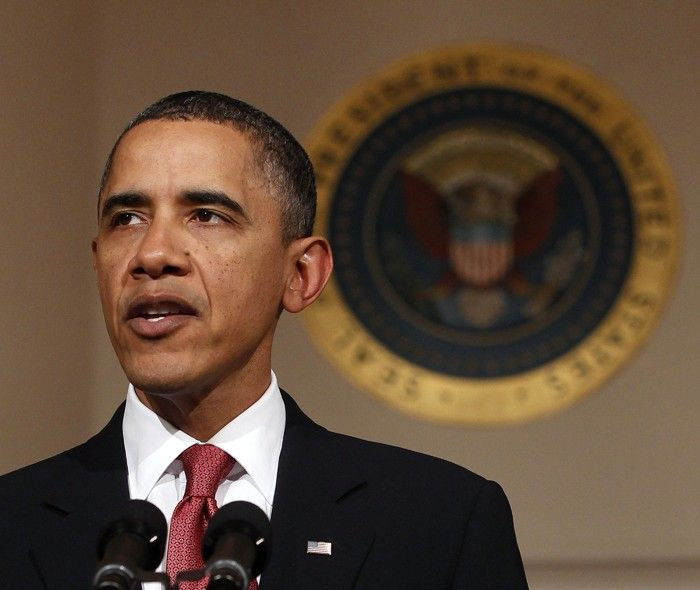White House proposes unemployment aid for states

President Barack Obama will propose giving financial relief to U.S. states struggling with high unemployment insurance debt, the White House said on Tuesday, hoping that a lifeline now will avoid bailouts later.
Many states have had to borrow from the federal government to meet rising demand for unemployment payments as the ranks of the jobless grew during the recession that began in 2007.
Now, 30 states are in debt, having borrowed $42 billion to pay their unemployment insurance obligations.
When Congress passed Obama's $814 billion economic stimulus plan in 2009, it waived interest charges on those loans, but the waivers expired on December 31, 2010.
Indebted states also face tax increases from the federal government, which is required by law to raise taxes on states that have not repaid their debt, according to an Obama administration official. The White House wants to change that for the short term.
Obama will suggest putting a moratorium on such interest payments and tax increases in 2011 and 2012 in the budget he is set to unveil on Monday.
This is good for the economy because it prevents tax hikes and gives a little bit of fiscal relief to states, the senior administration official said. It also greatly reduces the chances of a federal bailout.
In 2013, however, the moratorium would expire and in 2014 the president's proposal would require states to take in more revenue from payroll taxes by taxing companies on $15,000 of each employees' income rather than the current $7,000.
Republicans poured cold water on the idea of unemployment aid for the states, saying it would hurt job creation.
Jobs are destroyed -- not created -- by raising taxes on American employers, said Brendan Buck, a spokesman for John Boehner, the Republican speaker of the House of Representatives. The president should work with Republicans to reduce economic uncertainty and create jobs by cutting spending and preventing any new tax hikes.
At the same time the federal tax rate would be cut in half, the official said.
There would be no federal tax increase here but what would happen is states would have a broader tax base, he said.
BELEAGUERED STATES
White House spokesman Robert Gibbs said the proposal would help states that are struggling with budget gaps.
The president's proposal ... prevents increases in the federal tax that goes to the unemployment insurance fund, Gibbs said.
This policy, if enacted, would prevent ... further federal tax increases, would help states make up for the shortfalls they have and give them time ... to rationalize what they offer and how they pay for it, he said.
As the economy recovers, the fall in unemployment rates has varied widely by state, with typically half of the 50 U.S. states faring better than others that are still hobbled by the housing market downturn or a drop in manufacturing.
I think the president did the absolute right thing by being courageous enough to put this in his budget, said Andrew Stettner, deputy director of National Employment Law Project.
It's a smart proposal and gets the right start.
High levels of joblessness drive down tax revenue and push up demand for spending on unemployment benefits and other safety-net programs. While U.S. state tax revenues continued to strengthen at the end of 2010, many states are worried that the improvement will be slow and gradual, leaving them to scramble to meet spending demands.
To repay the unemployment loans' states could sell bonds, raise taxes, cut benefit amounts or borrow internally. Not all states, though, can or will want to issue bonds.
Some states are trying to pay back the federal loans quickly. The first interest payments, which are equal to about 4 percent on the debt's average daily balance, are due October 1, according to the NELP.
(Additional reporting by Kim Dixon; Editing by Christopher Wilson)
© Copyright Thomson Reuters {{Year}}. All rights reserved.





















